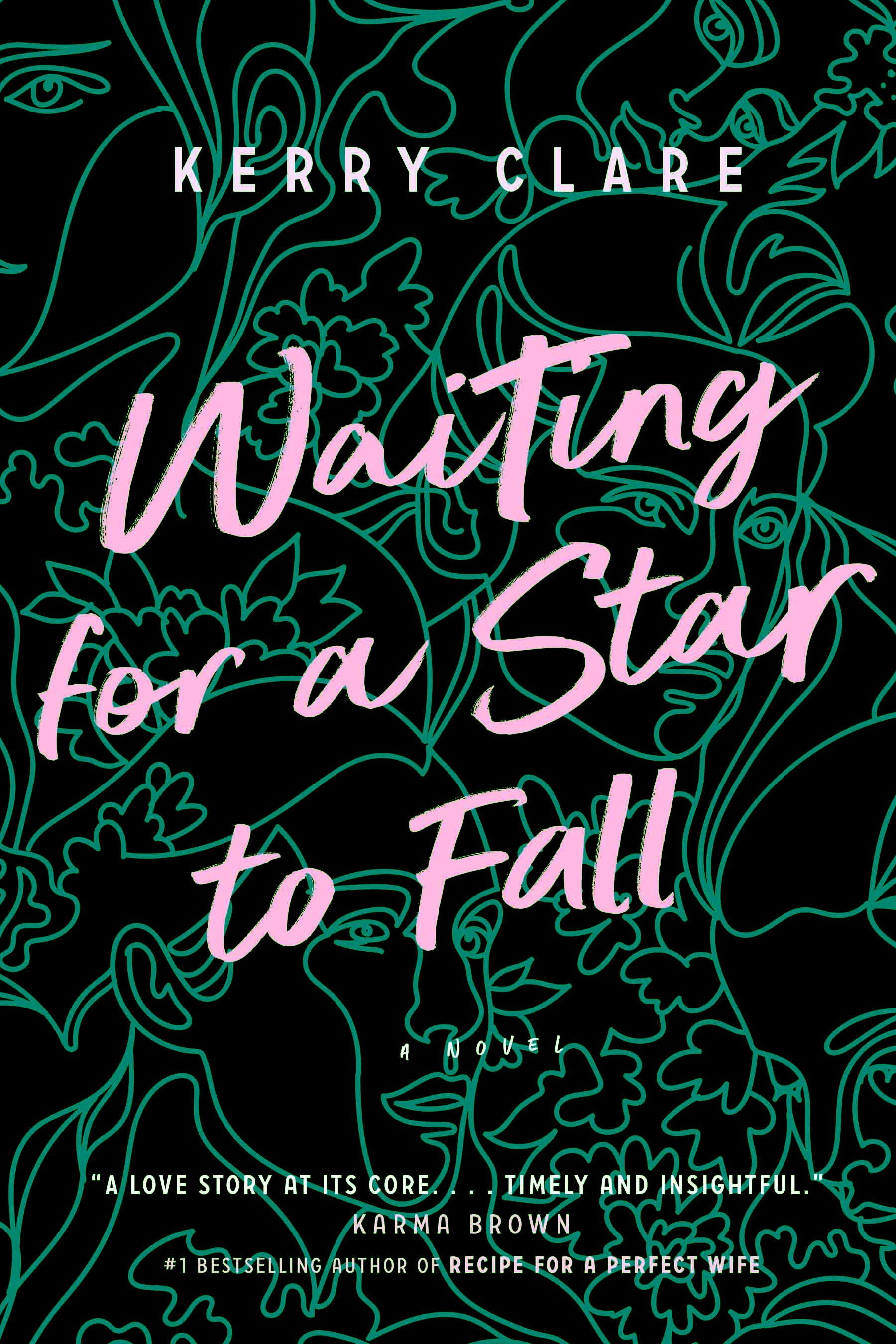I’m a big fan of Kerry Clare’s. She’s not only an extremely talented writer: she’s also a very generous person—someone who is endlessly supportive of her fellow authors. So naturally I couldn’t resist the opportunity to help spread the word about Kerry’s brand new book, Waiting for a Star to Fall, which is being published today. (Congratulations, Kerry!)
I recently had the opportunity to chat with Kerry about her book. What follows are my questions and Kerry’s answers.
I remember seeing one of your Instagram Stories about how the idea for this novel came to you. Could you talk a bit about that — how you know when an idea has the potential to become a novel and, more specifically, a novel that you want to write?
Photo Credit: Stewart Lawler
KERRY CLARE: This novel began with a photo in the newspaper of a politician who’d just started spiralling into supposed downfall because he’d been accused of sexual misconduct from years before and also because it was an open secret that he’d been having relationships with women who were much younger than he was and worked in his office. He was trying to defend his character, and then a few days later this photo emerged of him…with a much younger woman who had worked for him, apparently his “on-again-off-again-girlfriend.” The photo confirmed a lot of what people had been saying.
And I was so struck by this woman as a character, and by her role in as a character in someone else’s story. That she was still so young and would not fully understand just how young how for years and years. I was curious about her. And the complicating factor too of who was I to deny this woman agency, to infantilize her—even though she was clearly making terrible choices.
I knew immediately that this would likely be a very good idea for a novel because there was so much room for wondering, for exploration, and because there was so much about the idea that I didn’t know yet. And then I proceeded to just think about the idea for a few months, doing so much work in my head before I’d put a word on paper. All of this was a sign for me that I had a lot of material to work with, and that I’d be able to stay engaged and interested as I wrote.
I’ve read enough of your work to know that feminism is very much baked into your writing, whether you’re writing fiction or non-fiction. Could you talk a bit about that—what it’s like to be a feminist and a writer in 2020?
KERRY CLARE: I have always been a feminist, probably because I was raised by parents who taught me that deserved a place at the table, a piece of the pie. (What a gift that kind of confidence is.) But it wasn’t until 2016 and 2017, those most peculiar years, that I started flying my feminist flag so fiercely. Previously, I had been more engaged with seeking a kind of synthesis of ideas. You can see this in my first book, the essay anthology The M Word, which is definitely feminist, but which also contains range of ideas and approaches to motherhood and womanhood. I am fascinated by how different and disparate ideas can live together side-by-side, because that’s what the world is…but I decided to become less polite and understanding in response to anti-feminism as a growing movement. (Not surprisingly, I was spending a lot of time on Twitter during this period.) Can you fight polarization with further polarization? I don’t think so. But as anti-feminist ideas began to creep towards normalization, I couldn’t help but become more vocal about my own ideas and experiences. Feminism has given me everything—my pie, my place at the table. I want those same things for my daughters and for everybody’s daughters.
It has been a really crummy, dispiriting few years to be someone who cares about and values women’s lives and experiences. And yet—last summer I had this epiphany that readers are going to look back on this era as a terrific time for feminist writing. Commercial novels like Jennifer Weiner’s Mrs. Everything, and Marissa Stapley’s The Last Resort, and Karma Brown’s Recipe for a Perfect Wife. Megan Gail Coles’ Small Game Hunting at the Local Coward Gun Club. Fiction by young Black Canadian women writers like Rebecca Fisseha, Zalika Reid-Benta, and Jane Igharo—where previously there had literally been none. Fiction by Indigenous writers like Tracey Lindberg, Cherie Dimaline, and Dawn Dumont. There is a fierceness and a rage in these books, a brilliant, furious energy—and these books are going to survive, outliving all those awful men seeking to control women’s minds and bodies.
I feel really grateful to be writing and reading in the company of these writers and these ideas. Books are ever my solace.
Give me your 30-second elevator pitch for Waiting for a Star to Fall. What would you say to someone who hasn’t heard a word about this book?
KERRY CLARE: Girl falls for charismatic and charming older guy, putting all her faith in him. When this faith proves misplaced, she has to re-evaluate their relationship, and her whole identity, really. This is a book about love, power, and the ways our society mythologizes mediocre men. Somebody called it “a beach read with teeth” and I adore that. Writing fun books that people love to read is what I aim for. And for the record, I think we need beach reads all year round. You don’t even need a beach.

